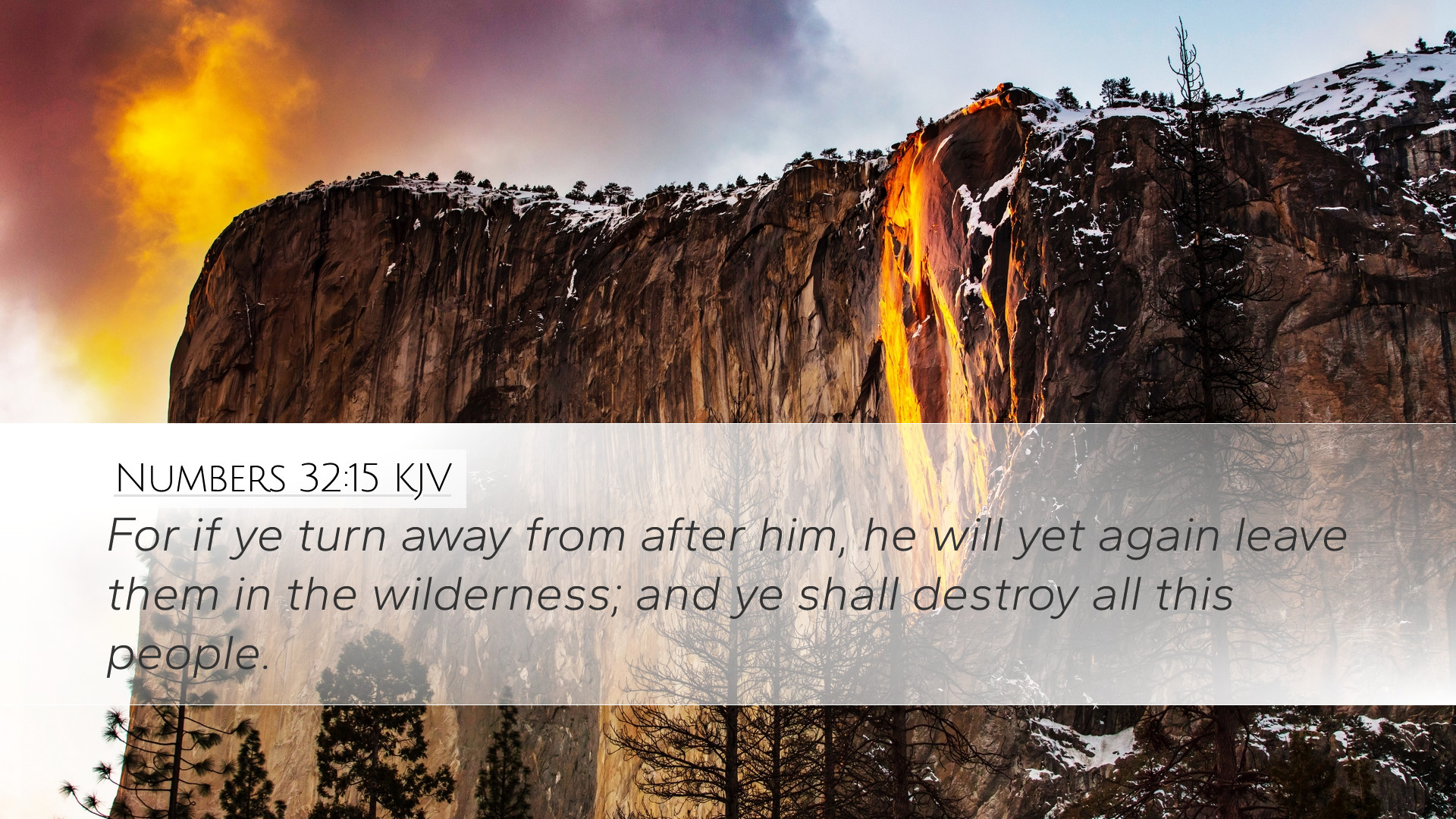Commentary on Numbers 32:15
Numbers 32:15 states: “For if you turn away from following him, he will yet again leave this people in the wilderness; and you shall destroy all this people.”
Introduction
This verse serves as a warning from Moses to the tribes of Reuben and Gad about the consequences of failing to fulfill their commitments to the Israelite community in their journey to the Promised Land. It emphasizes the importance of obedience to God's commandments and the impact that their actions could have on the collective well-being of the nation.
The Context of Numbers 32
- The Israelite community, having journeyed through the wilderness, is poised to enter Canaan.
- The tribes of Reuben and Gad express a desire to settle in the land east of the Jordan, a land suitable for their livestock.
- Moses’ reaction underscores the seriousness of their decision and its implications for the entire nation.
Moses’ Warning: A Call to Obedience
According to Matthew Henry, Moses challenges these tribes by recalling the past failures of Israel when they did not trust in God. He emphasizes that their behavior could lead to a repetition of those failures, which would endanger the entire nation. Henry discerns that the language used by Moses is not only direct but also indicative of the gravity of leadership responsibilities.
Albert Barnes reflects on the nature of disobedience as it relates to community. He asserts that turning away from God does not just affect the individual; it has a ripple effect that harms the community. The warning is both personal and communal, reminding leaders of their influence over others. This understanding beckons a broader exploration of how leadership within the church must align with God’s commandments.
Consequences of Disobedience
Adam Clarke interprets this verse with an emphasis on the dire consequences foretold by Moses. He notes that failure to follow God leads not only to personal loss but to collective judgment upon the people. Clarke elucidates that God's patience is not limitless; repeated defiance could lead to broader spiritual ramifications, a principle relevant not only in the Old Testament but echoed in New Testament theology regarding the community of believers.
Theological Implications
This verse raises significant theological questions about the connection between individual and community faith. The idea that an individual’s choice could lead to the destruction of the community invites reflection on corporate responsibility in faith practice.
Reflections for Pastors and Leaders
- Pastors must ensure that their congregations are aware of the consequences of turning away from God, not just for individual spiritual lives but for the health of the church as a whole.
- Moral integrity within leadership is imperative as leaders set the tone for communal faithfulness.
- The dangers of compromise with the world can lead to detrimental effects on the church’s mission.
The Role of Community in Faith
Moses’ address serves as a reminder of the community's role in maintaining faithfulness to God. Henry and Barnes together suggest that collective faith is fortified through mutual accountability. The exhortation is clear: leaders must encourage one another and their congregations toward a unified commitment to God's commands.
Encouragement for Spiritual Growth
In light of Moses’ warning, there lies an encouragement toward spiritual vigilance. Discipleship extends beyond individual piety; it encompasses our collective witness. As believers, we are called to encourage one another in our journeys toward holiness.
Conclusion
Numbers 32:15 serves as a critical reminder of the implications of our faithfulness to God. It reflects on the need for accountability within communities of believers and the potentially destructive consequences of disobedience. For pastors, theologians, and scholars, this verse offers both a challenge and an opportunity to reflect on the interconnectedness of faith within the Church.


